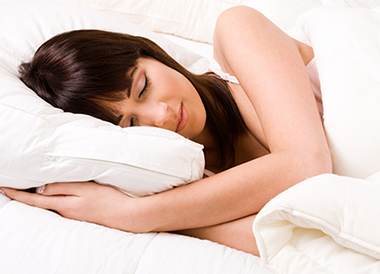LIVE WELL
Are You Getting Enough Sleep?
by XSport - October 2015, Edition 25Researchers have been looking into the benefits of consistent, quality sleep for years, and their results seem to support similar conclusions across the board: it’s good for us.
We stand to gain a lot from superior sleep habits, ranging from improved athletic performance to more energy, to a stronger immune system. So, it helps to hit the hay!

Why Get Better About Bedtimes?
The connection between getting your shut-eye and enhancing your health, fitness and sports performance is becoming clearer through efforts by pro sports teams such as the NFL’s New York Jets, and university studies like those done at University of Chicago and the Stanford Sleep Center. Overall, there is significant evidence in favor of a regular, good night’s sleep.
Fat Loss: Researchers at the University of Chicago studied dieters, fat loss, and sleep habits. They found that the group of dieters who averaged about 8.5 hours of sleep per night lost almost twice the amount of body fat than dieters whose sleep was reduced to 5.5 hours per night. Plus, the longer-snoozing group not only lost more body fat overall, they retained more muscle while they dieted, too.
Staying Healthy: Reports from a sleep specialist brought in to analyze and consult with the New York Jets players regarding their sleep patterns revealed a connection between sleep deficiencies and risk of injuries among athletes. And because injuries can be career-damaging, or even career-ending, it makes sense that sleep habits have been correlated to the duration of athlete’s careers as well. Another recent study showed that sleep deprivation disrupts the immune system, which can increase the risk of illness.
Performance Gains: At Stanford, researchers looked into the effects of increasing the sleep of college athletes from the perspective of sporting performance and actual skills. More sleep resulted in improvements in the shooting accuracy of basketball players, the sprint times of football players, the serve accuracy of tennis players, and the times recorded for swimmers leaving the blocks.
Stress Management: Most of us realize that feeling well-rested is an important component of managing our days’ ups and downs—your body and mind have a better chance at shuttling around the chemicals that help you stay calm yet energetic throughout both urgent and everyday tasks. On the flip side of that is how lack of sleep can have a negative effect, possibly even damaging your body, by prompting physical responses that are similar to the way your body responds to stress.
Tips to Help You Get Your Zzzs
- Get eight hours. According to most research on sleep, adults do best with 7.5 – 9 hours of sleep per night. Yet, most of us only average 6 - 7 hours!
- Cut off caffeine intake. You might boost the first part of your day with a coffee or energy drink, but skip the caffeine charge from mid-afternoon on.
- Power off digital devices. Turn off your phone, tablet and even e-book reader a couple hours before bedtime. They emit waves that might make it tough to drift off.